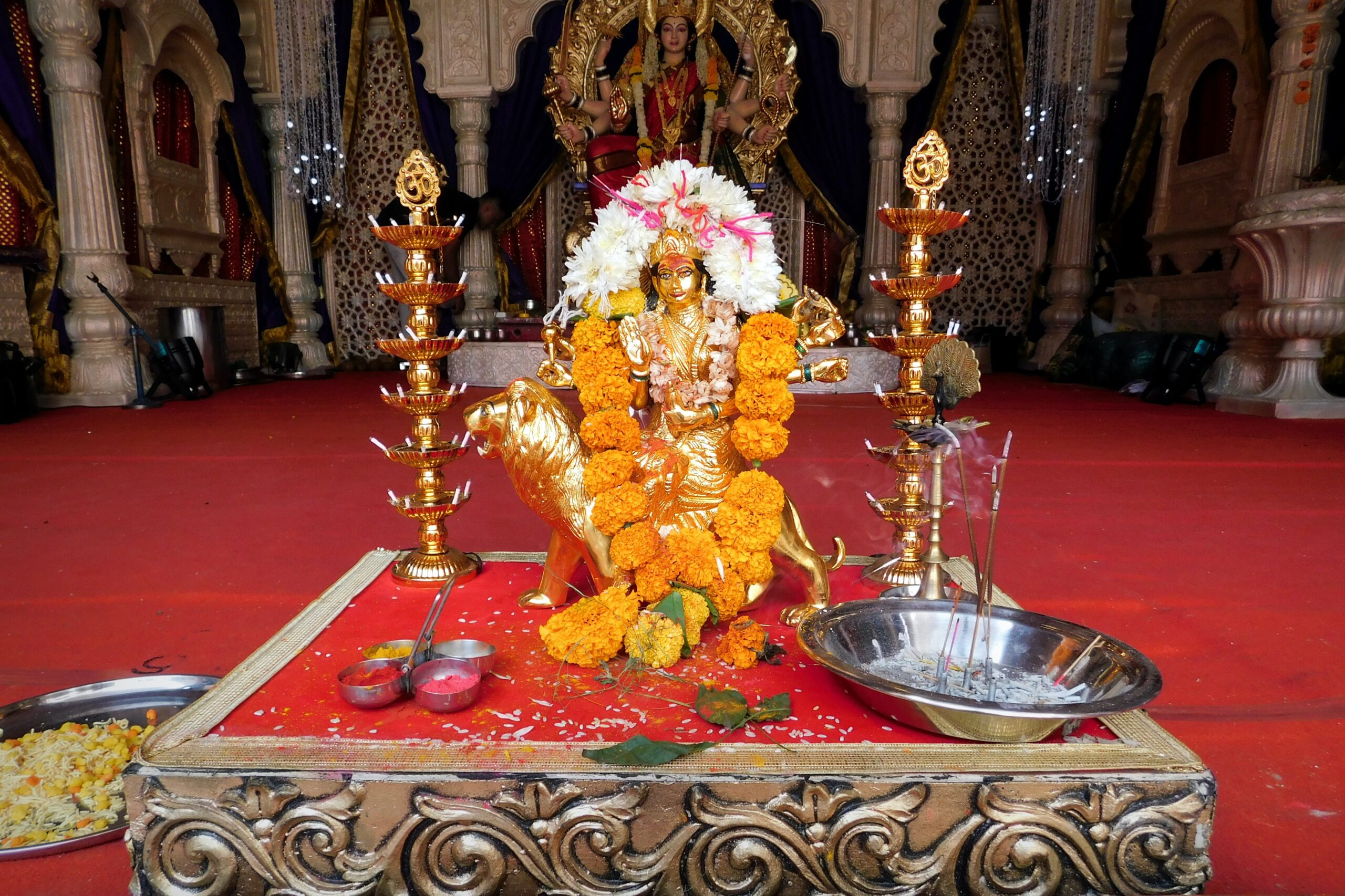
How Can I Be Respectful Of Religious Customs And Practices While Abroad?
When traveling to a foreign country, it is crucial to be aware and respectful of the religious customs and practices observed by the local people. By demonstrating sensitivity towards different beliefs and engaging in appropriate behavior, you can foster positive interactions and create meaningful connections with individuals from diverse faith backgrounds. In this article, we will explore some essential tips to help you navigate religious customs while abroad, ensuring that you leave a lasting impression as a respectful and culturally aware traveler.

Research and Educate Yourself
Travelling to a new country means immersing yourself in a different culture and way of life. One of the most important aspects of respecting religious customs and practices is to educate yourself about the local culture and customs. Take the time to learn about the country’s history, traditions, and belief systems.
Understanding the importance of religion in the country you are visiting is crucial. Religion plays a significant role in many cultures, shaping not only people’s beliefs but also their daily lives and societal norms. By familiarizing yourself with the importance of religion in the country you are visiting, you can better appreciate and respect the cultural practices that may be influenced by these beliefs.
Studying the major religious practices and beliefs in the country will also enhance your knowledge and respect. Take the time to learn about the dominant religions in the region and their core tenets. This will give you a deeper understanding of why certain practices and customs are considered significant to the local population.
Dress Appropriately
Respecting local dress codes is an essential part of showing respect for religious customs and practices. Different cultures have different expectations when it comes to clothing, particularly in religious settings. To ensure that you are dressing appropriately, it’s important to research and understand the local dress codes and norms before your trip.
In many places of worship, it is customary to cover up. This means avoiding clothing that exposes shoulders, cleavage, or knees. In some cases, you may be required to wear certain attire, such as a headscarf or long pants. By respecting these dress codes, you are demonstrating your understanding and respect for their religious practices.
It is also crucial to avoid wearing offensive clothing or accessories that may be seen as disrespectful. Be cognizant of slogans or symbols that may be offensive to the local population. It is always better to err on the side of caution and dress more conservatively to avoid unintentionally causing offense.
Observe and Follow Local Customs
Paying attention to local etiquette is key to being respectful of religious customs and practices. Each culture has its own set of customs and traditions that may have religious significance. By observing and following these customs, you are showing respect for the local population and their beliefs.
When visiting temples or mosques, it is important to follow religious practices. This may include removing your shoes before entering, covering your head, or following specific rituals. Familiarize yourself with the proper etiquette for these sacred spaces and ensure you follow them accordingly.
Respecting sacred sites and objects is essential in religious settings. Avoid touching or disturbing religious artifacts, and always ask for permission if you are unsure. Remember, these sites hold deep spiritual significance for many people, and treating them with reverence is a sign of respect.
Use Appropriate Language
Language is a powerful tool for communication, but it can also be a source of misunderstanding or offense. To be respectful of religious customs and practices, it is important to use appropriate language during your travels.
Learning essential greetings and phrases in the local language is a great way to show respect and connect with the local population. Simple phrases such as “hello,” “thank you,” and “excuse me” can go a long way in demonstrating your effort to engage with the culture.
Avoid using offensive language or telling jokes that may be disrespectful or insensitive, especially when it comes to religion. What may be humorous in your own culture might be seen as offensive elsewhere, so it is always better to be cautious and sensitive with your language choices.
Be careful with religious terminology, as well. If you are unsure about a religious term or its appropriate usage, it is better to ask someone for clarification rather than risk using it incorrectly or in an offensive manner.
Be Mindful of Public Displays of Affection (PDA)
Cultural norms regarding public displays of affection (PDA) vary around the world. To respect religious customs and practices, it is important to understand and adhere to the cultural norms of the country you are visiting.
In conservative areas, public displays of affection are often frowned upon or even considered offensive. Physical contact between couples, such as kissing, hugging, or holding hands, may be seen as inappropriate. It is important to be mindful of these cultural norms and refrain from any PDA in public spaces.
Similarly, when visiting religious spaces such as temples or mosques, it is essential to respect the sanctity of these places. Public displays of affection may not only be disrespectful to the religious customs observed in these spaces but may also make others feel uncomfortable. Always be aware of your surroundings and act accordingly.
Follow Dining Etiquette
Respecting dietary restrictions is another way to show respect for religious customs and practices. In many religions, specific dietary rules and restrictions are observed, and it is important to be mindful of these when dining in a different country.
Take the time to learn about the local food customs and traditions. Some cultures may have specific rituals or traditions associated with mealtime that are rooted in religious beliefs. By being aware of these customs, you can participate respectfully and understand the significance of certain practices.
If you are unsure about the dietary restrictions or customs, it is always better to ask before consuming certain foods or drinks. For example, in some religions, the consumption of alcohol or pork is prohibited. It is essential to ask for permission and respect these restrictions when dining with locals or in religiously significant areas.
Respect Religious Festivals and Holidays
Religious festivals and holidays hold deep cultural and religious significance for the local population. As a visitor, it is important to be aware of upcoming religious celebrations and to show respect for these events.
If you are invited to participate in a religious festival or holiday, it is an excellent opportunity to learn and appreciate the local customs and traditions. However, it is crucial to approach these events with respect and understanding. Be observant of the rituals and traditions taking place and follow any guidelines or instructions given by the locals.
Avoid disrupting religious activities during festivals or holidays. Keep in mind that these events may involve solemn rituals or prayer, and being respectful of the religious observances is crucial. Keep noise levels down, avoid interrupting ceremonies, and follow any rules or guidelines set by the organizers.
Engage in Cultural Exchange
Engaging in cultural exchange is a wonderful way to show respect and appreciation for religious customs and practices. When visiting a foreign country, make an effort to ask questions and show genuine interest in the religious practices of the local population.
Seek opportunities to learn from locals, whether through organized cultural tours or informal conversations. By asking questions and actively listening, you can gain a deeper understanding of their faith, rituals, and customs. This not only shows respect but also fosters meaningful connections between cultures.
In the spirit of cultural exchange, you can also share your own culture respectfully. By sharing your own traditions, beliefs, and practices, you promote mutual understanding and appreciation. However, it is important to avoid imposing your beliefs on others and to approach cultural exchange with an open mind and willingness to learn.

Be Respectful in Photography
Photography can be a wonderful way to capture memories while traveling, but it is crucial to be respectful, especially when it comes to religious customs and practices.
Always ask for permission before taking photos of individuals, especially in religious settings. Some people may be uncomfortable with being photographed, while others may have certain beliefs or customs that prohibit it. Be respectful of their wishes and seek consent before capturing their image.
Avoid capturing people in religious settings without their consent. While the architecture and ambiance of religious sites can be visually stunning, remember that these places hold deep spiritual significance for many. It is important not to trivialize or exploit the religious practices or rituals by sensationalizing them through photography without proper understanding and respect.
When photographing in places of worship, avoid using flash. Bright flashes can be disruptive and disrespectful, especially during religious ceremonies or moments of prayer. Be mindful of the ambiance and atmosphere of the religious space, and adjust your photography techniques accordingly.
Seek Local Guidance
When it comes to respecting religious customs and practices while abroad, seeking local guidance is invaluable. Locals are often the best source of information and can help you navigate the intricacies of their cultural and religious customs.
Consult locals or tourist information centers for advice and recommendations. They can provide you with specific guidelines, dos and don’ts, and answer any questions or concerns you may have regarding religious customs and practices. Their firsthand knowledge and insights will ensure that you approach your travels with respect and sensitivity.
If you are uncertain about a particular custom or practice, don’t hesitate to ask for guidance. Locals will appreciate your willingness to learn and understand their beliefs. By following their instructions and recommendations, you can ensure that you are respecting religious customs and practices to the best of your ability.







